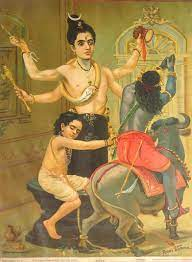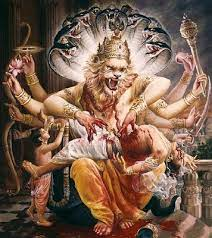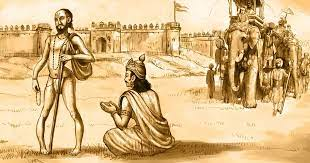SVETAKETU (SVVETHAKETHU) was a son of sage Aruni alias Uddaalaka. Under his father's training Svetaketu became a great scholar even in his young age. With the increase in his scholarship, he became very proud.
After having understood about this, his father called and asked him, "By studying all about what you can see, hear and understand, have you learnt anything about what you cannot see, hear and understand?" Svetaketu accepted that he did not know.
Then his father explained to him the mystery of Paramaathmaa (Supreme Soul)which is without beginning or end. After completing his education under his father, Svetaketu went to the Paanchaala kingdom. There in the royal assembly named Jaivaali, the King Pravaahana asked aske severaal like where ddo people go from this world? How do they return? Svetaketu was unable to answer these questions because these points were not taught by his father to him.
Svetaketu became dissappointed with his inability, approached his father and told his failure to answer such questions. But his father advised him to meet and to ask the same questions to the same king. As Svetaketu refused to go there, his father met the King Pravaahana and returned after enlightening the king. Then he explained all these things to his son Svetaketu.
It has been observed that Svetaketu was the first person who raised his voice against the evil of drinking and adulteries in the society. There is astory in the MahaBharata about the fact which prompted him to marriage within the frame work of law.
Svetaketu's sister name was Sujaathaa. She got has married with Khahodaka. Ashtaavakra was their son. Thus Svetaketu was Ashtavakra's maternal uncle. Svetaketu and Ashtavakra grew up together In Khahodaka's Aasramam.
(This is a part of Blogchatter's Half Marathon 2023 )









